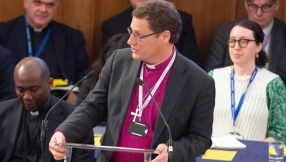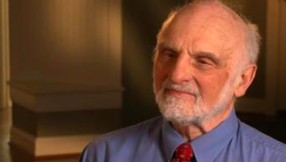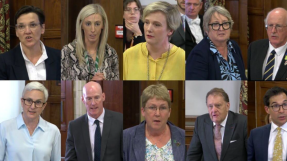
Here is a Tweet I just "happened" to read in the minute before sitting down to write this article. It's from someone quoting the famous Baptist preacher, Charles Spurgeon. And here is the extract in question: "Satan always hates Christian fellowship; it is his policy to keep Christians apart. Anything which can divide saints from one another he delights in. Since union is strength, he does his best to promote separation."
It's true in general, of course. And if you are someone reading this who has just somehow got out of the habit of being part of a physical church each week during the pandemic – and has no compelling health reason to remain away – then you need to get back to your congregation. Believing in Christ almost always means belonging with His people!
But it is also true in a whole variety of specific situations too. Which brings me neatly to the Church of England Evangelical Council (CEEC), on the one hand, and, on the other, the Church of England's evangelical bishops.
And what I am hoping is that this entire article is, in a sense, wrong. What I would be delighted to discover is that it is based on misinformation or misunderstanding or miscommunication.
You see, the thing about writing columns such as this is that occasionally people get in touch with you and tell you stuff. Sometimes those individuals even seem quite reliable and rational! And sometimes there seems to be no reason to doubt what they tell you.
It's not necessary for me to go into who said what about who and why, and where and when, on this particular occasion. What maybe helpful for me to write as a result though, is simply this: to ask the good people of the CEEC and on the episcopal bench who are evangelical by conviction to see if they can really do the best they can to honour Christ and serve his people by working together in a collaborative way as much as possible.
What does that mean in practice? It means communication; it means a bit of give and take; and most of all it seems to me it means coming up with a clear, united and viable strategy for evangelicals in the Church of England as the Living in Love and Faith (LLF) process reaches its culmination in the not too distant future.
Because what we don't want, I think – and by "we" I mean some if not all evangelical clergy and lay people in the parishes – is either no strategy; or a confusing strategy; or possibly worst of all, competing strategies.
It's easy, of course, for armchair commentators such as me to pontificate from a distance, typing away while reaching for a cup of tea and idly wondering if there is any cake in the house. That almost certainly does bring with it a certain naivete and idealism. On the other hand, the advantage of the view from a distance is perhaps being able to see the wood from the trees; readers will have to judge for themselves.
It might be argued at this point that whereas the CEEC just has to serve the evangelical constituency, evangelical bishops, by contrast, have to serve the whole church. Well, in a superficial way that may be true. But both groups most importantly have to serve Christ and serve the gospel. They both have to "contend for the faith that was once for all entrusted to God's holy people" as Jude puts it. (In fact Jude has a whole lot of relevant stuff to say to them all at this time). And both groups, if they are true to themselves, operate within the same evangelical theological framework.
There is no doubt that in recent years the CEEC has massively raised its game. Almost five years ago I wrote an article, for this very website no less, entitled "Where is the Church of England Evangelical Council when we need it?". I would not write such an article today because it is no longer true. The CEEC has been, and is, really getting its act together. It's a good news story.
And I have no intention of criticising evangelical bishops. They have a nightmare of a job – and who can imagine the huge pressures they face? There are some really great bishops among them who, for what it's worth, I respect and admire hugely. Many of them have fantastic ministries. The last thing they need is some pious little pipsqueak of a vicar sounding off virtuously about them.
But I think what I am trying to suggest is that from where I am in the parish it looks like there could be even greater scope for a united evangelical front in the Church of England as critical days approach. Perhaps that's already in the pipeline. Perhaps I am misinformed. Or perhaps I am just hopelessly, naively idealistic. But, then again, it seems to me Scripture is idealistic too: "How very good and pleasant it is when kindred live together in unity!"
I've never really been grabbed by the metaphor about oil running down Aaron's head and beard (Psalm 133v2) which comes directly after that statement. A commentary explains to me that it is all about God's people displaying genuine consecration. That may be true, but it has always sounded a bit messy, uncomfortable and icky to me.
Then again, maybe that's also part of the point. Unity in any Christian context, including the one about which I have been writing, is messy, uncomfortable and icky. But it is an end worth striving for, isn't it?
So I look forward to seeing the photo shoot at which CEEC members and a large number of evangelical bishops are standing together with oil dripping off their heads... I've just checked, and you can even get Holy Land anointing oil on Amazon. One recent reviewer waxes lyrical about it: "Wow the anointing oil is exactly what I needed thank you," she writes, ungrammatically if enthusiastically, followed by three thumbs up. So, CEEC leaders and bishops, what are you waiting for?
David Baker is Contributing Editor to Christian Today and Senior Editor of Evangelicals Now www.e-n.org.uk in print and online. He writes here in a purely personal capacity.













